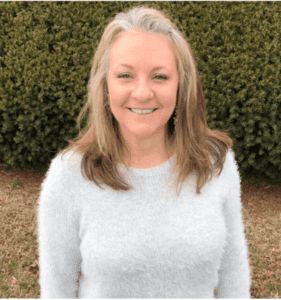COVID-19, Collaboration and Sarcoma
By Brandi Felser, Executive Director

COVID-19, Collaboration & Sarcoma
Treating cancer like a pandemic: Collaboration is necessary to cure sarcoma
COVID-19 has hit us like a wrecking ball. There is no part of society that has gone untouched. Despite the damage this pandemic has done, there has been some positive. The “system” of science has been upended and the science community has united, focused on one goal.
All of our resources are being pooled to fight this virus. Data and information are being shared in new ways, shared faster and are freely available. #MedTwitter and other science threads offer information sharing in real time that can benefit and accelerate science. Peer review has taken on a new meaning and a more critical assessment of research and information. This is leading us to a more robust science discussion and ultimately better and timelier therapies and outcomes.
While this is moving us closer to saving lives due to the coronavirus, I can’t help but ask, why haven’t we done this for cancer? Over 600,000 Americans are expected to die of cancer in 2020 and 7,000 of those from sarcoma (ACS, 2020)*. These numbers do not change much year to year. Yet, we are still plodding along stuck in the same system. When are we going to start treating cancer like a pandemic?
For decades, cancer advocates have been pressing for increased collaboration, data sharing and pooling of resources. The system of science has made this difficult and almost impossible. I read an article in STAT News Morning Rounds on April 23, “It’s noisy’: Competing Covid-19 efforts could hamper progress, experts warn”, and the following text struck me:
“that instead of collaborating and seeding innovation, some groups are effectively duplicating each other’s work or competing for limited resources — which could stymie progress in the pandemic response…”
Cancer advocates and others have been highlighting these challenges for years. The science community has been duplicating efforts and fighting for limited research funding, causing slow progress and no real movement in the death rate for sarcoma and other cancers. There is a lack of information sharing or outreach to others who may have data or technology that would advance potential lifesaving research.
The spirit of collaboration has always existed, but our system has made it difficult. When we stifle collaboration, we are bound to duplicate efforts and slow progress. Sharing information is critical to finding better treatments, a cure for sarcoma, and ultimately saving lives.
The COVID-19 pandemic mirrors daily life for sarcoma patients. Shortage of treatments, very few specialists, lack of research, uncertainty, anxiety, and loss of life are common to both.
The pandemic also highlights the need for urgent, innovative medical research to find treatments and a cure for an aggressive and deadly disease like sarcoma. As with this virus, sarcoma lacks critical research funding and patients are often faced with no sarcoma-specific treatment choices and little hope.
People will still be diagnosed with sarcoma long after we find a vaccine and treatments for COVID-19. Sarcoma patients will still need access to lifesaving treatments and the science community will still need to share information broadly and in timelier and more collaborative ways to accelerate science.
It is refreshing to see the science community come together with a sense of urgency without many of the usual constraints. But will this continue? That is up to us. Society must go back to normal at some point, but hopefully some changes stick and we learn from the lessons taught by the COVID-19 outbreak. Increased collaboration in the science community, for the sake of sarcoma patients across the world, I hope is one of them.
*American Cancer Society. Cancer Facts & Figures 2020.


